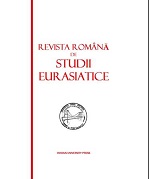INSTRUMENTS USED BY THE ROMANIAN COMMUNISTS IN THE ANTI-TITOIST PROPAGANDA. ACTIONS FOR MANIPULATING AND MISINFORMING THE ROMANIAN PUBLIC OPINION
INSTRUMENTS USED BY THE ROMANIAN COMMUNISTS IN THE ANTI-TITOIST PROPAGANDA. ACTIONS FOR MANIPULATING AND MISINFORMING THE ROMANIAN PUBLIC OPINION
Author(s): Silvia IonițăSubject(s): History
Published by: Ovidius University Press
Keywords: Schism; ideology; media war; reversed image; influence; Titoism; collective mentality; imagery war; caricatures; public discourse.
Summary/Abstract: The media war unleashed by Kremlin’s order against Josip Broz Tito from the moment of the Soviet-Yugoslav schism has generalized at an alert pace within the entire communist bloc. Moscow satellite countries, among which was also Romania, unfolded an extremely fierce and broad propaganda campaign, which aimed at denigrating the Yugoslav communist leader. Gheorghe Gheorghiu-Dej, the Romanian communist leader proved overzealous in respecting the guideline imposed by Stalin concerning the attitude that had to be adopted in the case of Yugoslav communists and used against the Belgrade regime diversified propaganda instruments. In this propaganda campaign led from the top, most often he used mass media channels, especially newspapers and the radio, but also those specific to public opinion intoxication, manipulation and disinformation; the favourite ones from this arsenal were the printings, the poster and the public discourse. During this period (1948-1953), the language violence and hardness used against the Yugoslavs remains emblematic, as well as the emphasis and simplification of the message by means of the satiric drawing and caricatures. Their role, in the opinion of Romanian communists, had to be decisive in inoculating with the collective mentality of the Romanian people those convictions that would offer these leaders the advantage at the optimum moment. The propaganda campaign also represented an occasion for Gheorghiu-Dej to remove his political opponents in order to cumulate the whole power in his hands, even if this turned him into Moscow’s tool. The factor which determined the end of the anti-Titoist propaganda within the communist bloc was Stalin’s death and the change of leadership in Kremlin.
Journal: Revista Română de Studii Eurasiatice
- Issue Year: 9/2013
- Issue No: 1+2
- Page Range: 123-136
- Page Count: 14
- Language: English

